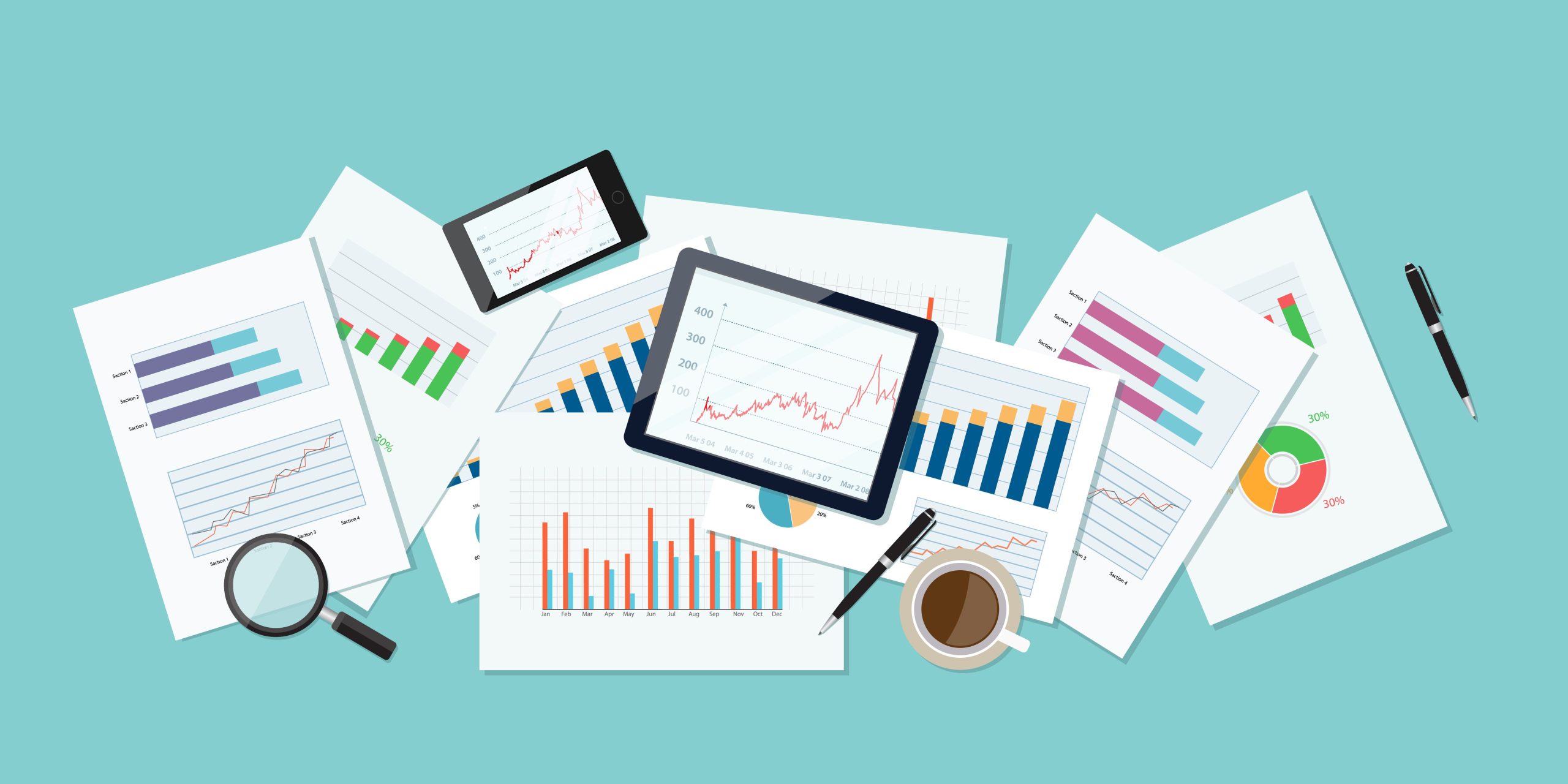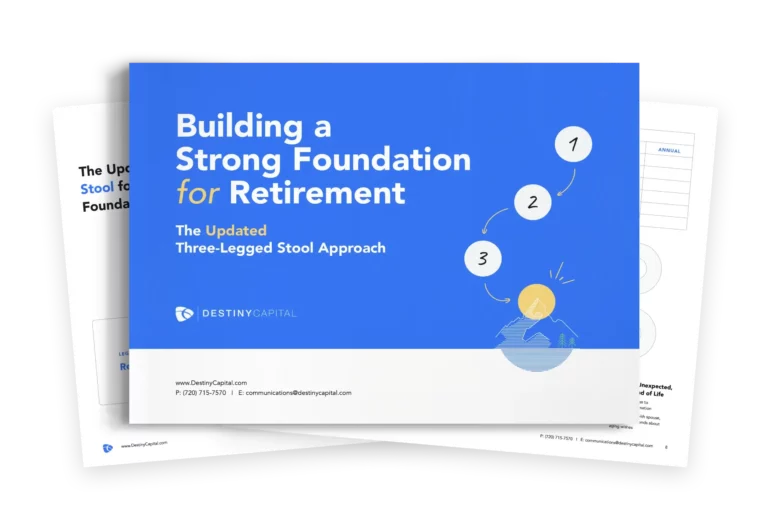
Market & Economy Recap: February 2020
Nearly two decades ago, I worked as a branch manager of a large national bank during a time when a particularly virulent strain of avian flu emerged both overseas and, to a lesser extent, in the United States. As I counted the massive bank vault each morning, all I could do was envision all of the countless hands that each piece of currency passed through prior to landing in my fingers. As you might imagine, I went through a brief Howard Hughes phase and had empty two-liter sized bottles of hand sanitizer scattered throughout my office for weeks. However, what I remember most about this incident was the massive corporate initiative that began in an effort to educate bank employees on emergency procedures in the event that the avian flu brings the country to a grinding halt. It was alarming to hear words and phrases such as ‘bank runs’ and ‘looting’ discussed at the corporate level. Alas, time passed and scientists and doctors learned that the flu strain wasn’t going to be as widespread or damaging as initially feared, and life went back to normal.
That particular incident left an imprint on me, and the global reaction to the aforementioned avian flu reminds me a bit of what we are experiencing today as it relates to the current strain of coronavirus (COVID-19) that has emerged out of Wuhan, China. As it stands now, there are a lot of unknowns and – as we’ve preached in nearly every market-related communication over the past 18 months – financial markets do not like uncertainty.
When it comes to the effects of this outbreak, our questions generally align with those of Fed Chairman Jerome Powell – Will the effects be persistent? Will the effects be material? I should also note that, while this commentary will primarily focus on economic impacts, we fully recognize that this virus is having a tragic health impact on individuals and families across the globe.
Will The Effects Be Persistent?
What we know seems to be evolving every day, but – as it stands today – we know that COVID-19 is highly contagious and has a long asymptomatic incubation period of around 14 days. This virus also seems to be a bit unpredictable with some patients exhibiting very minor effects while the virus has proven deadly with others. The Chinese Center for Disease Control and Protection analyzed 44,672 confirmed COVID-19 cases between December 31, 2019 and February 11, 2020. Of those cases, 80.9% were considered mild, 13.8% severe, and 4.7% critical. Critical cases were those that exhibited respiratory failure, septic shock, and/or multiple organ dysfunction/failure.
When trying to put an illness like coronavirus into perspective, people often compare it to something familiar like the seasonal flu. In this year’s flu season, roughly .05% of people infected have died. A recent study released by China on February 18th has shown the death rate of COVID-19 to be around 2.3% in mainland China (although more recent data may indicate that this number might be closer to 3%). Clearly, that’s a significantly higher death rate than the seasonal flu, but it falls far below the fatality rate of the 2002/2003 SARS outbreak which stood at 9.6%.
Given the relatively long asymptomatic incubation period and recent CDC alerts about the threat of COVID-19 potentially spreading domestically, it seems as though this virus may be a persistent issue globally for the foreseeable future. How severe the spread will still remain to be seen.
Will The Effects Be Material?
It is difficult to put this coronavirus outbreak into historical context simply because the Chinese economy is so different than it was, for example, during the 2002/2003 SARS epidemic. In 2002, China’s GDP was roughly $1.4 trillion. In 2019, China’s GDP exceeded fourteen trillion dollars. See the chart below for the staggering GDP growth the Chinese economy has experienced over the last two decades.
China appears to have acted decisively, quarantining roughly 45 million people as of the end of January. To put the quarantine into perspective, that’s more than double the residents of Colorado, Arizona, Nevada, Kansas, and Utah combined.
Given the emergence of China as an economic superpower, a quarantine of this magnitude will have an impact not only on the Chinese economy, but also on global organizations that rely on China for, among other things, supply chains, manufacturing, and consumerism. Apple is a company that should put a familiar face to this exact situation. Apple relies heavily on China for manufacturing, supply chain resources, and customers. As a result, Apple’s leadership recently reported that they do not expect to meet second-quarter revenue guidance, stating “work is starting to resume around the country, but we are experiencing a slower return to normal conditions than we anticipated.” Furthermore, to help illustrate the relevance of this current outbreak, FactSet reported that: of the 364 earnings calls between January 1st and February 13th – 38% of the calls included a mention of “coronavirus”. I would be very surprised if we didn’t see that percentage increase when screening earnings calls in late February and early March.
Due to the immediate impact on the Chinese economy, and the subsequent spread to other countries such as Italy, Japan, and others, it is evident that there will be some level of material effect due to the COVID-19 coronavirus outbreak. However, it is too early to tell the magnitude of these material effects. We are closely watching indicators such as Purchasing Managers’ Manufacturing/Services Index data for the US, China, Japan, and others in an effort to measure global impact.
What Comes Next?
Decisions borne of emotion and fear tend to result in negative outcomes. Each Destiny Capital client portfolio is carefully constructed to buffer against the effects of immediate, unanticipated market volatility. This affords the opportunity for Destiny Capital’s Investment Committee and Advisors to patiently assess risks and opportunities using research and data – not emotion – in order to make appropriate investment decisions. Rest assured, we have our finger on the pulse of the COVID-19 outbreak, and we are tracking new developments by the hour.
As a firm, Destiny Capital’s Leadership Team has heeded the recent advice of the CDC, and we are prepared for any eventualities posed by the spread of coronavirus. The health and well-being of our employees and their families are of paramount importance, and our entire organization has the technology and resources needed to work remotely from anywhere in the world without disruption. While we obviously hope this situation doesn’t come to that, we wanted to stress our preparedness as an organization and reassure our trusted clients and business partners that we will be there to serve you no matter what the future may bring.
Have any questions? We’re here to help!
{{cta(‘b98204c7-0e0e-4d3b-895d-e54ef00e4f97’)}}





